
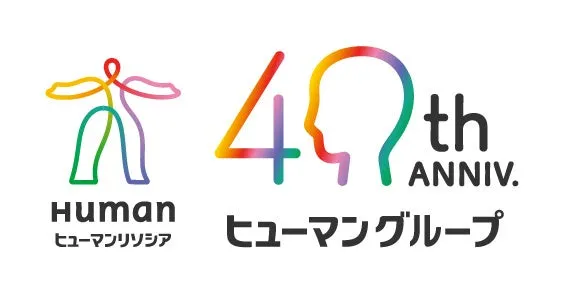
Major Corporations Feel the IT Talent Shortage in Japan, Urging Future Measures
IT Talent Shortage in Japan: A Rising Concern
In a recent survey conducted by Human Resocia—a leading staffing and human resource services company based in Tokyo—an alarming 75.2% of businesses reported a significant shortfall in IT talent. This issue is particularly pronounced among large enterprises, where nearly 80% (79.6%) of firms with over 1,000 employees expressed concern about the scarcity of qualified IT professionals.
The survey included responses from 500 business personnel responsible for hiring across various sectors, highlighting a growing unease regarding the availability of IT workers. This acute shortage in the talent pool was echoed by 79.2% of management-level respondents, indicating a shared recognition at the executive level of the pressing need for IT staff.
Future Predictions: A Looming Crisis
Looking ahead, the results of the survey suggest that the crisis is projected to worsen. A substantial 58.4% of companies foresee an increase in the IT talent shortage over the next five years. This indicates an ongoing, chronic issue that businesses need to address urgently. Furthermore, managers provided a more dire view, with 59.9% predicting an escalation of the problem compared to 48.4% among executive levels, underscoring that those closer to day-to-day operations feel the impacts more acutely.
Interestingly, in large companies (over 1,000 employees), 40.1% foresee a heightened shortage, compared to 31.6% who felt the same just three years prior. This 8.5-point increase reflects a rising but perhaps understated urgency among these larger firms to secure IT talent for the ongoing digital transformation (DX) efforts.
Digital Transformation (DX): Progress vs. Reality
Despite this stark talent shortage, the survey indicated that 71.4% of organizations are currently undertaking initiatives for digital transformation. However, only 21.0% of respondents believe that these efforts are effectively translating into meaningful advancements. The disconnect here is troubling: a significant portion, approximately 30%, acknowledged that progress is minimal, and 20% do not perceive any advancement at all.
Challenges like employee knowledge gaps (65.0%), scarcity of personnel with IT and DX expertise (63.2%), and a lack of adequate representatives in the field (62.0%) highlight the concerns many companies face in pushing their DX agendas. Without the essential IT talent, many firms find themselves trapped, unable to realize the full potential of their digital initiatives.
The Bigger Picture: An Unforeseen Gap
This troubling survey highlights a growing issue: the gap between supply and demand for IT talent in Japan is projected to reach an extraordinary deficit of 730,000 skilled professionals by 2040, according to Human Resocia’s forecasts. As corporations increasingly rely on digital solutions, the urgency for effective recruitment strategies and alternative solutions becomes more critical.
Human Resocia has launched its Global IT Talent (GIT) service focused on assisting companies in in hiring and utilizing overseas IT engineers. This service aims to bridge the talent gap and support Japan’s international competitiveness by enhancing digital capabilities through global expertise.
Conclusion: Urgent Measures Required
As the nearly 80% of large organizations grapple with the IT talent shortage, proactive measures need to be taken. This includes investing in recruitment strategies for overseas talent and enhancing current employee skill sets to keep pace with digital demands. The looming future, if not addressed, promises to deepen the crisis affecting countless industries.
For additional information on the survey or to engage further on the topic of overseas IT talent utilization, please visit Human Resocia's GIT website or Human Resocia's main page.
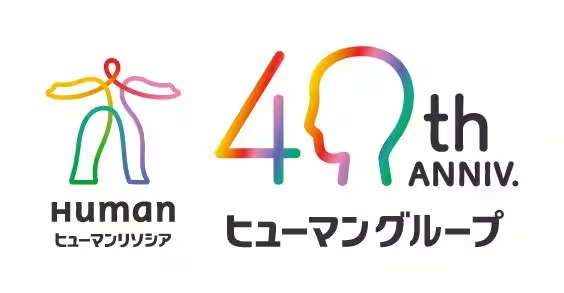
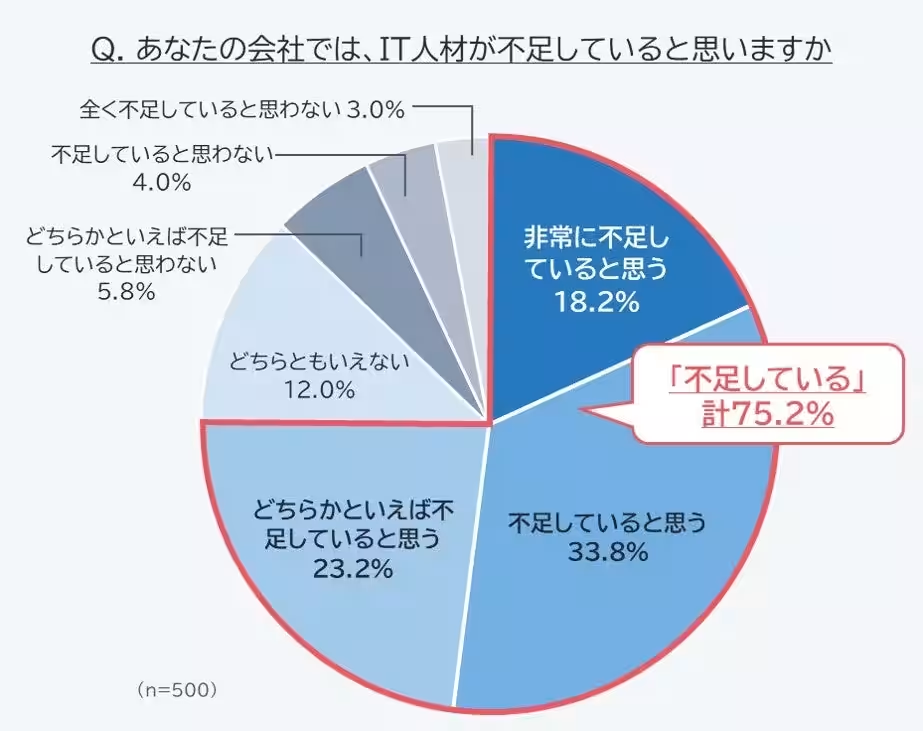



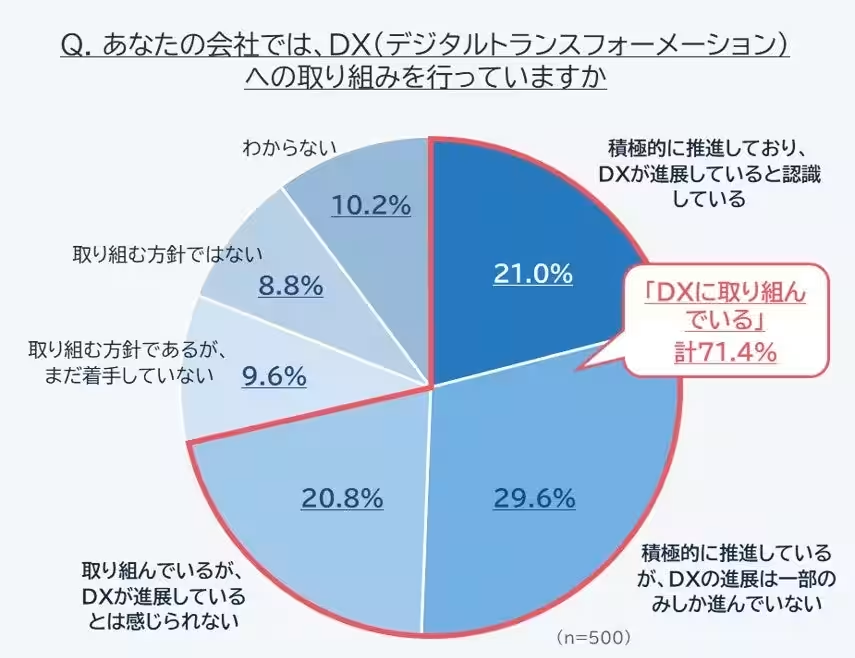
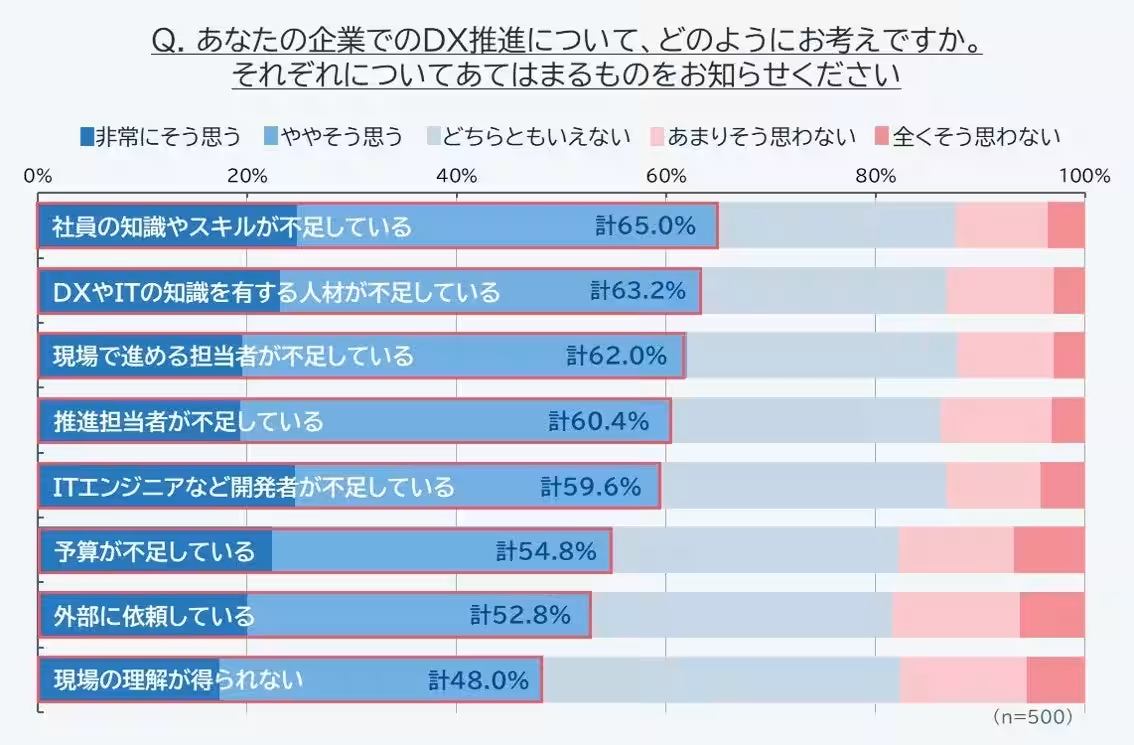

Topics Business Technology)










【About Using Articles】
You can freely use the title and article content by linking to the page where the article is posted.
※ Images cannot be used.
【About Links】
Links are free to use.